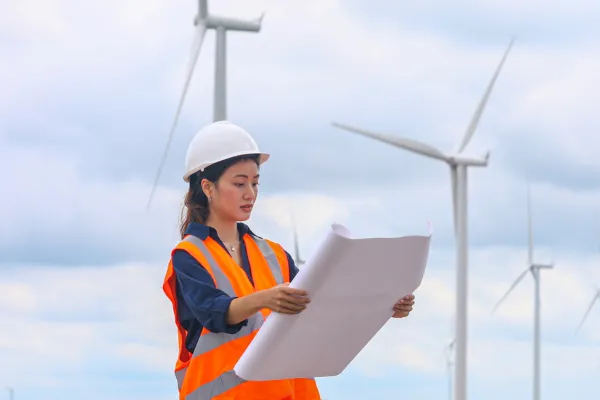Blogs

Shrinking Your Professional Carbon Footprint: Actionable Steps for a Sustainable Career
Shrinking Your Professional Carbon Footprint: Actionable Steps for a Sustainable Career
The concept of a carbon footprint has gained significant traction in recent years, extending beyond personal lives and into our professional spheres. As awareness of climate change grows, many employees are seeking ways to reduce their environmental impact at work. Understanding and minimizing your carbon footprint in the workplace not only contributes to global sustainability efforts but can also enhance your career prospects in an increasingly eco-conscious job market.
Your carbon footprint at work encompasses a range of activities, from your daily commute to the energy consumed by your office equipment. According to a study by the Carbon Trust, office-based employees can be responsible for 4.4 tons of carbon dioxide emissions annually. This figure underscores the potential for significant positive change through individual actions in the workplace.
One of the most impactful ways to reduce your professional carbon footprint is by rethinking your commute. The U.S. Environmental Protection Agency reports that a typical passenger vehicle emits about 4.6 metric tons of carbon dioxide per year. By opting for public transportation, carpooling, cycling, or walking, you can dramatically decrease your emissions. If your job allows for remote work, even working from home one or two days a week can make a substantial difference.
In the office, energy consumption is a major contributor to carbon emissions. Simple habits like turning off lights and unplugging electronics when not in use can lead to significant energy savings. The Department of Energy suggests that smart power strips can reduce your power usage by 50% in office spaces, cutting both emissions and energy costs.
Waste reduction and proper recycling are crucial components of a sustainable workplace. Implementing a personal system for separating recyclables, composting organic waste (if facilities are available), and minimizing single-use plastics can significantly reduce your workplace waste. The Ellen MacArthur Foundation reports that transitioning to a circular economy, which includes comprehensive recycling practices, could reduce greenhouse gas emissions by 22-44% by 2050.
Your lunch break also presents opportunities for reducing your carbon footprint. Choosing plant-based meals more often, using reusable containers and utensils, and supporting local, sustainable food vendors can all contribute to a lower-carbon diet. A study published in the journal Science indicates that plant-based diets could reduce food-related emissions by up to 73%.

Water conservation, though often overlooked, is another important aspect of workplace sustainability. Simple actions like reporting leaks promptly, using water-efficient appliances, and being mindful of water usage can contribute to reducing your overall environmental impact at work.
Beyond these individual actions, you can amplify your impact by advocating for broader sustainable practices within your organization. This might involve joining or starting a green team, suggesting sustainability initiatives to management, or incorporating environmental considerations into your work projects. Such initiatives not only reduce the company's overall carbon footprint but can also position you as a forward-thinking, environmentally conscious professional.
As businesses increasingly prioritize sustainability, demonstrating your commitment to reducing your carbon footprint can enhance your career prospects. Many companies now value employees who can contribute to their sustainability goals. By developing expertise in green practices relevant to your field, you can become a valuable asset in the transition to a low-carbon economy.
Reducing your carbon footprint at work is a journey of continuous improvement. By implementing these strategies and staying informed about new ways to minimize your environmental impact, you can contribute to a more sustainable future while potentially advancing your career. Remember, every action counts, and collectively, these efforts can lead to significant positive change in our workplaces and beyond.
Sources:
Carbon Trust. (2021). The carbon savings potential of homeworking in Europe
U.S. Environmental Protection Agency. (2023). Greenhouse Gas Emissions from a Typical Passenger Vehicle.
U.S. Department of Energy. (2023). Energy Efficiency in Office Spaces. [Note: The DoE provides energy-saving tips, but as an AI, I can't guarantee the accuracy of specific statistics mentioned. Verification is advised.]
Ellen MacArthir Foundation. (2023). Circular Economy and Emissions Reduction.
Poore, J., & Nemecek, T. (2018). Reducing food's environmental impacts through producers and consumers. Science, 360(6392), 987-992.

Better Work, Better Life
Support@cagedbirdhr.com
Copyright 2025 Caged Bird HR®., a Worklution Inc Company All Rights Reserved

